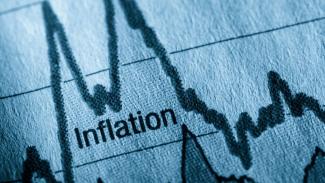
How Will Inflation Affect Your Government Pension?
Inflation has run rampant over the last year, reaching a 40-year high back in June 2022. Since then, it’s come down gradually, but many government employees are understandably worried about inflation’s long-term effect on their pension plans, and what they can do to safeguard their savings. At Bridgerland Financial, we specialize in helping government employees navigate their government pension decisions and plan for a confident retirement. In this article, we’ll discuss the overall impact of inflation and what to expect from your government benefits.
What Is Inflation?
Inflation is the general increase of prices and goods which can lead to an erosion of your purchasing power over time. It essentially makes every dollar earned worth less today than it was yesterday.
The Consumer Price Index (CPI) is a common measure of inflation. The most recent CPI report from December 2022 shows that inflation has risen 6.5% over the past year! That is significantly higher than the typical 2% rise we see in an average year.
So, how does inflation affect your government pension? Well, the answer really depends on whether you are still accruing benefits, or if you have already retired.
Before Retirement
Prior to retirement, the money paid into your pension is invested in various assets throughout the stock market which helps your benefit grow faster than inflation. Though the exact rate of return you will earn is specific to your pension plan, the stock market as a whole has averaged roughly a 10% historical return as measured by the S&P 500 Index. Using this amount as an example, we can see how inflation affects your pension over time.
At a 10% annual return, your pension would have only grown 3.5% (10% - 6.5%) in inflation-adjusted terms from December 2021 to December 2022. Now imagine that your pension only grew 7% over the course of the year, while inflation remained the same. Your real rate of return would only be 0.5%! Over time, fluctuating returns and increasing inflation can drastically affect both how much your pension earns as well as how much each dollar is worth when it comes time to retire.
After Retirement
In retirement, you will receive annuity payments based on the total benefit amount accrued during your working years (contributions and earnings). At this point, you have locked in the value of your plan and you are guaranteed a set income for life.
Government employees retiring under the Federal Employee Retirement System (FERS) will also receive cost-of-living adjustments (COLA) that are meant to offset the rate of inflation. However, it doesn’t solve the inflation problem entirely due to provisions in the law. If inflation is 2% or less, your annuity payment will be adjusted by the full COLA. But if inflation is greater than 2%, your annuity payment will get the COLA minus 1%. This 1% difference can have a significant impact on your purchasing power over time, especially because your ability to earn additional income is reduced in retirement.
The 2023 COLA is 7.7% for FERS retirees, the largest increase in 40 years. While this is a substantial increase that will help compensate for the high levels of inflation in 2022, retirees must still contend with the rise in healthcare expenses, which often outpaces the everyday inflation that younger consumers face.
Is Your Pension Safe From Inflation?
There are several ways to safeguard your savings from the risk of inflation. Working longer, contributing to other forms of savings, and diversifying your income are just a few options. But one of the biggest factors in how your government pension will be affected by inflation is deciding when to retire and claim your benefits. This can be a tricky decision, especially in a high-inflation environment.
You may feel pressured to take your benefits sooner rather than later out of fear that inflation and poor market performance could devalue your savings. On the other hand, you may want to wait in order to recapture earnings when inflation subsides and the market levels out. Regardless of which option you’re considering, choosing when to retire is a decision that should be thoroughly assessed in the context of your overall financial plan.
At Bridgerland Financial, we can help you navigate the current high-inflation environment so you can retire with confidence. If you would like to learn more about how we empower retirees to make wise decisions for the future, schedule an appointment online or reach out to us at david.packer@bridgetoretire.com or (435) 535-1630.
About David
David Packer is founder and financial advisor at Bridgerland Financial, an independently managed financial firm in Utah. With 20 years of industry experience, David serves his clients by helping them bridge the gap between their working years and their retirement. He provides tailored, comprehensive financial plans to his business owner and individual clients so they can retire with confidence. David has a bachelor’s degree in finance and holds the Chartered Retirement Planning Counselor℠, CRPC® credential. Outside of the office, David loves to spend time with his wife and five kids and stay involved in his community. He currently serves on the board of directors of the Cache Valley Chamber of Commerce. He and his wife, Melonie, spent years as foster parents and eventually adopted their foster children. David loves playing and watching all kinds of sports, including officiating high school sports, and won’t turn down a good board or card game. Learn more about David by connecting with him on LinkedIn.

